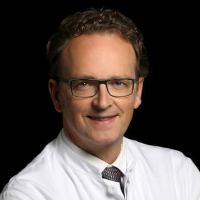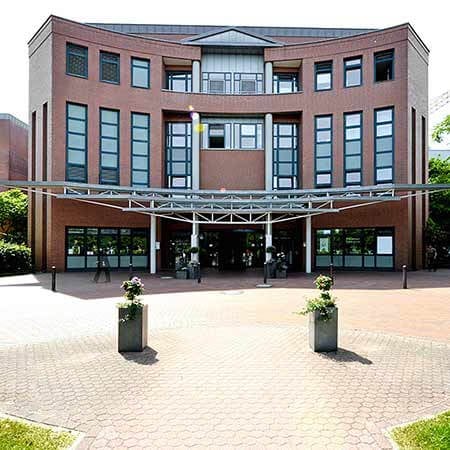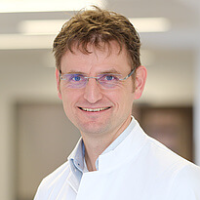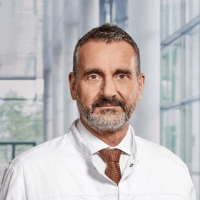Cardiosurgery – treatment in the Best European Hospitals
Here you will find most technologically advanced cardiosurgical hospitals in the world
The selection of doctors and clinics is carried out on the basis of annual qualification reports. The main selection criterion is the number of operations or procedures performed. It takes into account experience, reputation in the medical society, the availability of quality certificates and high specialization in a certain field.
Focus of treatment:
- Anomalous pulmonary venous connection
- Aortic coarctation
- Aortic valve insufficiency (avi)
- Aortic valve stenosis
- Atrial septal defect (ASD)
- Atrioventricular valve dysplasia (avd)
- Congenital and acquired heart defects
- Left ventricular aneurysm
- Mitral valve insufficiency (prolapse)
- Mitral valve stenosis
- Patent foramen ovale (PFO)
- Pulmonary valve insufficiency
- Pulmonary valve stenosis
- Tetralogy of fallot (ToF)
- Tricuspid valve disease
- Tricuspid valve stenosis
- Ventricular septal defect (VSD) Show more

Department of Cardiothoracic Surgery
According to the Focus magazine, the Department of Cardiothoracic Surgery ranks among the top German medical facilities specializing in the surgical treatment of diseases of the cardiovascular system and lung cancer! The department offers the full range of surgical services for the treatment of diseases of the cardiovascular sys





Department of Cardiac Surgery
The Department of Cardiac Surgery provides a full range of surgical treatment in its area of specialization. Special emphasis is placed on heart valve repair and replacement surgery, coronary artery bypass grafting, thoracic aortic surgery, adult congenital and acquired heart disease surgery, pacemaker and defibrillator implan

Department of Cardiothoracic Surgery and Vascular Surgery
The Department of Cardiothoracic Surgery and Vascular Surgery provides effective surgical treatment for diseases of the heart, respiratory system, and blood vessels. The team of cardiac surgeons operates on patients with heart valve pathologies, coronary heart disease, heart failure, and heart rhythm disturbances. In the field o





Cardiac surgery helps people with coronary artery disease, septal and valve defects, myocardial infarction, etc.
| 1 | University Hospital of Ludwig Maximilian University of Munich |
| 2 | University Hospital Rechts der Isar Munich |
| 3 | HELIOS Clinic Krefeld |
| 4 | University Hospital Frankfurt-am-Main |
| 5 | Clinic of Advanced Biological Medicine Frankfurt-am-Main |
Heart surgery helps to solve many problems associated with human cardiac activity. Heart surgery is performed in both adults and children. For every thousand born children, ten need cardiac surgery.
Content
- Cardiosurgery overview
- Most common heart diseases
- Types of cardiosurgery
- Coronary artery bypass
- Rehabilitation period
- Where can I undergo cardiosurgery abroad?
- The cost of treatment abroad with cardiac surgery
- How can I undergo cardiosurgery abroad?
Cardiosurgery overview
In the field of medicine, various pathologies of the heart and blood vessels are corrected with the help of heart surgery. Such diseases require surgical interventions quite often. As a rule, cardiac surgery is necessary in the following cases:
- Conservative treatment is ineffective
- The disease progresses rapidly
- The patient consulted a doctor too late
- The pathology is life-threatening
The results of treatment with cardiosurgery demonstrate positive statistics. After heart surgery, disturbing symptoms disappear or decrease, as a result of which the general condition and quality of life of the patient are improved noticeably.
Today, all surgical interventions for congenital heart defects can be divided into three categories, i.e. closed heart surgery, open heart surgery, and minimally invasive cardiac surgery.
Closed surgeries are surgical interventions in which the heart itself is not damaged. They are performed outside of it, and therefore do not require the use of any special equipment, except for the usual surgical instruments. The cavities of the heart are not "opened"; therefore the cardiac surgery is called "closed", and is widely performed as the first stage of surgical intervention.
Open heart surgery involves opening the chest (thoracotomy). In this case, the patient is connected to a heart-lung machine. The device temporarily stops the work of the heart and allows surgeons to perform all the necessary surgical manipulations. With the help of the heart-lung machine, it is possible to operate on any, even the most complex conditions. Open heart surgery takes several hours and is considered quite difficult and traumatic.
A heart-lung machine is not always used for open cardiac surgery. Surgery on a stopped (without blood supply) heart negatively affects the immune system, blood condition, and the entire human body. When performing cardiosurgery on a beating heart, the surgeon uses special equipment in the area of the affected coronary artery. The rest of the heart contracts normally and pumps blood. Beating heart surgery avoids some serious complications, such as stroke, embolism, pulmonary edema, and others. However, this type of cardiosurgery is not suitable for all patients.
The minimally invasive technique combines the techniques of cardiac surgery and coronary interventions. The surgery is performed through a small incision in the chest or endovascularly. It also includes robotic surgery.
Most common heart diseases
Among all heart diseases the most common are:
- Ischemic heart disease. Its cause is the lack of blood supply to the myocardium due to damage to the coronary arteries.
- Arrhythmia. These are diseases associated with heart rhythm disturbances.
- Cardiomyopathy. To this group of diseases conditions such as the increased size of the heart chambers are attributed. They are usually manifested by heart failure and heart rhythm disturbances.
- Heart defects. This includes both congenital heart pathologies and acquired ones.
- Atherosclerosis. This is a chronic disease characterized by damaged walls of blood vessels that feed the heart.
- Arterial hypertension. This pathology is characterized by high blood pressure.
- Diseases of the endocardium and myocardium, arising from inflammatory processes in the heart tissues.
- Valvular heart disease. Valvular heart disease is characterized by damage or defect in one of the four heart valves: the mitral, aortic, tricuspid, or pulmonary. Normally functioning heart valves ensure the proper blood flow.
- Heart attack. A heart attack occurs when the flow of blood to the heart is blocked.
- Pericarditis and pathologies caused by problems with the outer cardiac membrane.
- Myocardial dystrophy. Patients with myocardial dystrophy have other diseases that are accompanied by impaired metabolic processes in the cardiovascular system.
Types of cardiosurgery
In modern medicine, the most common types of cardiosurgery include:
- Coronary artery bypass grafting (CABG).
The coronary artery bypass grafting improves blood flow in the heart arteries with the help of vascular shunts. It is applied in ischemic heart disease (coronary artery disease). Coronary artery bypass grafting can be performed both with and without using a heart-lung machine.
- Hybrid cardiac surgery.
The hybrid cardiac surgery involves a combination of coronary artery bypass grafting and simultaneous endoscopic stenting of other vessels. Hybrid cardiac surgery is considered very effective in ischemia.
- Treatment or replacement of the mitral valve.
The most common heart disease is insufficiency or stenosis (narrowing) of a valve located between the left ventricle and the left atrium. Most often it develops in patients with rheumatism, the lack of treatment of which leads to heart failure. A minimally invasive type of surgery is used to cut the valve adhesions or replace it with a prosthesis.
- Coronary stenting.
The operation is performed by the endovascular method and consists of removing the atherosclerotic plaque from the vessel and installing a stent – a special frame that does not allow the vessel to narrow again.
- Radiofrequency ablation (RFA).
Surgical treatment of arrhythmia consists of the destruction of the focus that causes disturbances in the heart rhythm. Often, arrhythmia does not cause significant inconvenience to a person, but this pathology leads to dangerous complications.
- Pacemaker implantation.
Heart failure, cardiomyopathy, pathologies of the sinoatrial node, conditions after previous cardiac surgery may be the reasons for the implantation of a pacemaker. The pacemaker is implanted through a small incision under the collarbone.
- Heart transplant.
An operation to replace a patient's heart with a donor one is performed in case of severe heart diseases when other operations will not bring the expected result.
Coronary artery bypass
Coronary artery disease leads to the insufficient blood supply to the heart muscle and, as a result, to its damage. Currently, the number of patients suffering from ischemic heart disease is constantly increasing – millions of people in the world suffer from it.
For decades, physicians and cardiologists have tried to improve the supply of blood to the heart with drugs that dilate the coronary arteries.
Coronary artery bypass grafting is a cardiac surgery that allows achieving the same result and that has been proven to be safe and effective. Over the decades, a lot of experience has been accumulated and significant success has been achieved in performing such operations. Coronary artery bypass grafting is widely used in clinical practice today.
Coronary artery bypass grafting is a cardiosurgery for restoring normal blood supply to the myocardium. This heart surgery improves the quality of life of patients with ischemia and extends its duration.
This cardiac surgery is the most effective method of treating coronary artery disease and allows patients to return to a normal active life. Patients often feel much better after undergoing coronary artery surgery because they no longer experience the symptoms of coronary artery disease. Patients experience a gradual improvement in their well-being after heart surgery, so the most significant changes in their condition occur in several weeks or months.
Continuous improvement of surgical techniques and application of the latest medical equipment allow surgeons to perform minimally traumatic to the patient operations. All this contributes to a decrease in the duration of a patient's stay in a hospital and accelerates his recovery.
CABG is a surgical procedure that restores blood flow to the heart below the vasoconstriction site. This surgical manipulation creates a pathway for blood flow to the part of the heart that was not supplied with blood because of the narrowing.
The incision to access the heart is made along the midline of the sternum. The following incisions are usually made on the legs. This is where the surgeon takes a section of the healthy artery or vein that will be used for bypass surgery.
Arteries from the legs are not harvested in all cases, but very often. The fact is that leg arteries are usually relatively "clean", not affected by atherosclerosis. Besides, these arteries are longer and larger than other healthy artery vessels available for harvesting. Finally, after taking a section of an artery from the leg, usually, there are no further problems. Blood circulation is not disturbed.
The most common and preferred for bypass surgery are the internal thoracic and radial arteries.
The radial artery of the hand is located on the inner surface of the forearm closer to the thumb. If this type of cardiac surgery is preferred, a doctor will conduct additional studies to exclude the occurrence of any complications associated with harvesting this artery. Therefore, one of the incisions can be located on the arm, usually on the left.
The internal thoracic artery is harvested from under the sternum. Its sufficient diameter and the absence of atherosclerotic lesions are determined with the help of coronary angiography. The choice of surgery is made after coronary angiography and an assessment of the degree of damage to the coronary arteries of the heart.
Indications for coronary artery bypass grafting include:
- Acute coronary syndrome
- Acute myocardial infarction
- Heart defects with concomitant myocardial ischemia
- Reduced tolerance to physical activity
The main contraindications for such treatment are:
- Patient has high cardiosurgery risks
- Severe heart failure
- Diffuse coronary artery disease
Rehabilitation period
After cardiac surgery, the patient stays in the intensive care unit. If there are no complications, in 1-2 days the patient is transferred to a regular ward. The general condition of the patient is closely monitored not only in the intensive care unit but also during the entire stay in the hospital. Blood pressure, complete blood count and urine tests, heart rate, respiration, and the condition of the suture are regularly assessed. The patient spends about two weeks in the hospital. Further recovery takes place at home and takes up to two months.
Before discharge, the doctor will give the recommendations regarding medications intake and suture care. He will also tell the patient about the lifestyle modifications, nutrition, and physical activity. After coronary artery bypass grafting, the patient may need to wear a medical bandage or elastic bandages.
There is a risk of complications development after heart surgery. In the process of recovery, periods of deterioration and improvement will alternate, but an increase in temperature, suture inflammation, and other conditions should be immediately reported to the doctor.
As a general recommendation, it is necessary to mention mandatory smoking cessation. Patients cannot miss an appointment with the health care professional and the examinations assigned to them (ultrasound scanning, ECG, and others).
Where can I undergo cardiosurgery abroad?
Medical tourism is becoming more and more popular these days, as medicine abroad often ensures a much better quality of cardiac surgery.
The following European hospitals show the best success rates in cardiosurgery:
- University Hospital Essen, Germany
- University Hospital Oldenburg, Germany
- Medipol Mega University Hospital Istanbul, Turkey
- University Hospital Ulm, Germany
- University Hospital Frankfurt am Main, Germany
You can find more information about the world's leading and European hospitals on the Booking Health website.
The cost of treatment abroad with cardiac surgery
The prices in the world's leading and European hospitals on the Booking Health website are relatively low. With Booking Health, you can undergo cardiosurgery treatment abroad at an affordable price.
The cost of treatment abroad varies, as the prices depend on the hospital, the specifics of the disease, and the complexity of its treatment.
For example, the cost of treatment with coronary artery bypass grafting in Germany starts at 23,000 EUR, while the cost of treatment with coronary artery bypass grafting in Turkey starts at 20,000 EUR.
You might want to consider the prices of possible additional procedures and follow-up care. Therefore, the ultimate cost of treatment in European hospitals may differ from the initial price.
To find out the information on the overall cost of treatment abroad, you may contact us by leaving the request on the Booking Health website.
How can I undergo cardiosurgery abroad?
It is not easy to self-organize any treatment abroad. It requires certain knowledge and expertise. Thus, it is safer, easier, and less stressful to use the services of a medical tourism agency.
As the largest and most transparent medical tourism agency in the world, Booking Health has up-to-date information about the cardiosurgery in the best European hospitals. We will help you select the right clinic taking into account your wishes for treatment.
We want to help you and take on all the troubles. You can be free of unnecessary stress, while Booking Health takes care of all organizational issues regarding the treatment abroad. Our services are aimed at undergoing cardiac surgery safely and successfully.
Medical tourism can be easy! All you need to do is to leave a request on the Booking Health website, and our manager will contact you shortly.
Authors:
This article was edited by medical experts, board-certified doctors Dr. Nadezhda Ivanisova, and Dr. Bohdan Mykhalniuk. For the treatment of the conditions referred to in the article, you must consult a doctor; the information in the article is not intended for self-medication!
Our editorial policy, which details our commitment to accuracy and transparency, is available here. Click this link to review our policies.

